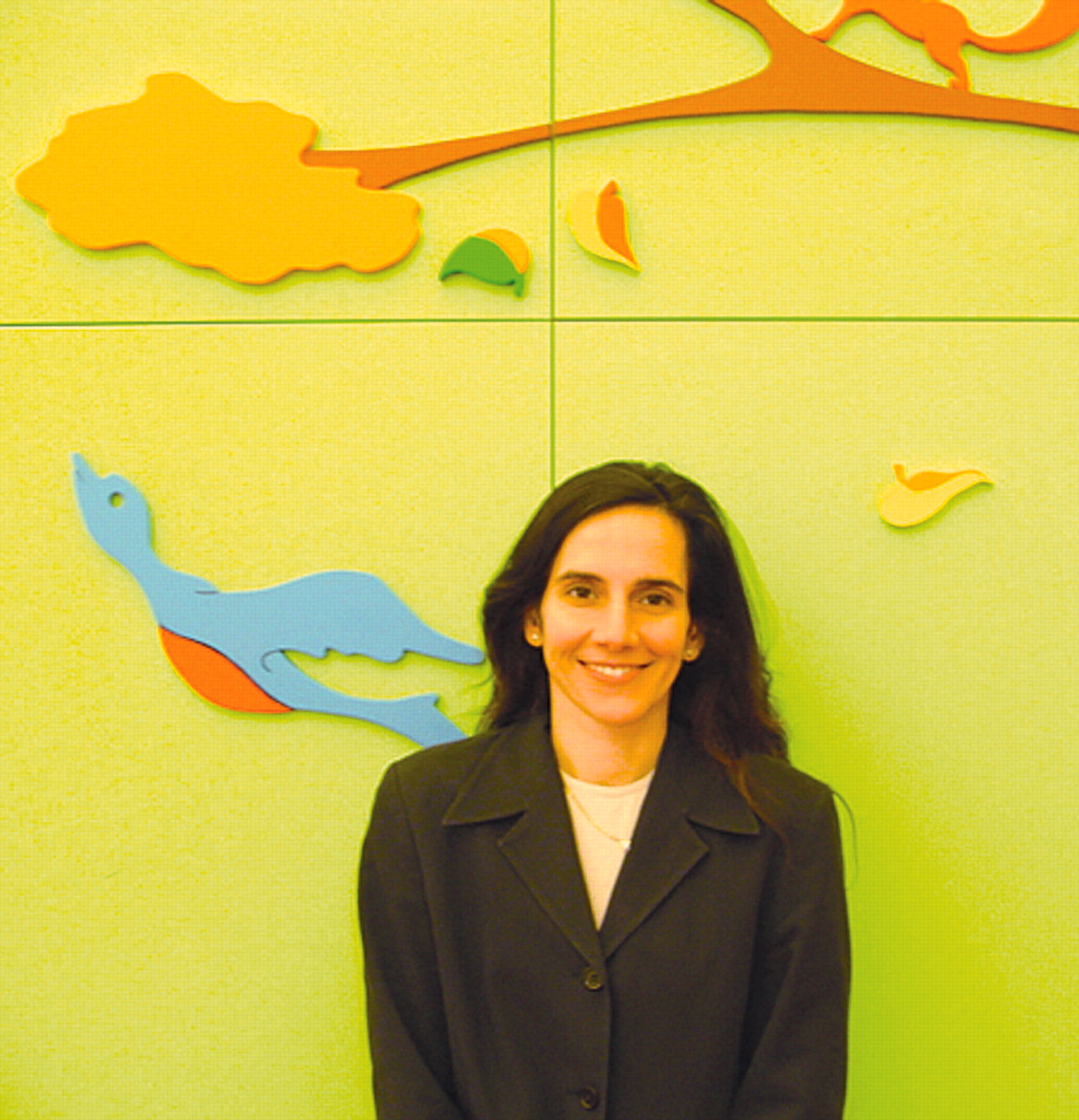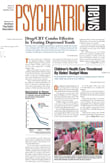Instead of waiting for patients to find them, psychiatrists with one mental health outreach program are leaving their offices to provide crisis intervention for children, adolescents, and their families in the homes and schools of New York's East Harlem section.
Fast Break is a mobile mental health crisis program designed to provide immediate care to children with mental health problems such as disruptive behavior, major depression, and anxiety disorders.
As part of their work with the program, staff psychiatrists and social workers travel to homes and schools where children and adolescents may be threatening suicide or acting out violently.
Staff members attempt to resolve the situation by providing on-site crisis counseling to the child and his or her family and try to engage those involved in the crisis in continuing mental health treatment in a clinical setting.
Fast Break is one of the many programs of the Association to Benefit Children (ABC), a community-based social services agency located in East Harlem.
Families need not have health insurance to receive services through ABC. Services are free and are funded by the state and through private donations.
Nina Y. Freund, M.D., M.P.H., is a staff psychiatrist who joined the Fast Break program in May 2003 after working with a foster-care program in the South Bronx.
Freund, who also maintains a private practice, said she enjoys her work with Fast Break not only because it provides her with an opportunity to work with a culturally and clinically diverse population, but also because she gets to treat mental health problems that, if left untreated, could cause children to be removed from their home and placed in the foster-care system.
“In my previous work [in foster care], I came in at the ninth inning—I saw the end result of problems that had escalated to the point where they couldn't be resolved within the family,” Freund told Psychiatric News. “With Fast Break, I have the chance to prevent problems before they get to that point.”
Freund is one member of a team of Fast Break psychiatrists and social workers who provide crisis counseling, conduct mental health evaluations, counsel families, and provide ongoing mental health treatment to children with mental health problems.
One of the ways children and their families come to Fast Break is through one of ABC's companion programs, Freund said.
Many of ABC's programs, including Fast Break, are housed in Echo Park, a facility built in 2003 and located at 126th Street and Park Avenue in East Harlem in what used to be a dilapidated coffin factory. ABC also operates preschools, an afterschool program, a homeless shelter, a summer camp, and a Head Start program.
Families Need Not Travel
The close proximity of the programs makes it easier for children and their families to benefit from an array of services, Freund noted. “Elsewhere, families have to travel all over the place to receive services,” she said. “It is difficult for them to meet the demands of working with many different people at different agencies throughout the city.”
If a child attending class in ABC's Head Start program, for example, displays inappropriate behaviors such as urinating in the corner or crawling on the floor, Freund said, the child's teacher may walk upstairs to notify Fast Break staff of a possible problem and suggest a mental health evaluation for the child.
Schools, Police Refer Families
Other referrals come from the community. “Over the years, we've developed relationships with neighborhood schools,” Freund noted.“ School guidance counselors, in particular, know all about us.”
Instead of dialing 911 when a fight erupts in the classroom or on the playground, or when a teenager flies into a rage in the school counselor's office, school officials often dial the Fast Break hotline to ask for help.
In addition, Fast Break staff maintain close ties with the local police precinct, which has referred families to the program for mental health treatment.
Police officers may also accompany clinicians to the scene of a violent confrontation between a child and parent at home, Freund said. Sometimes, it may be necessary for staff to call 911 as the crisis is taking place.“ When a crisis in unfolding, you're making a constant calculation of whether it is safe to continue what you are doing,” she continued.
But if staff is intervening in a home where they've been on a prior occasion, Freund said, “we often have an alliance with the family members and can use our clinical skills to de-escalate what could become an explosive situation.”
Freund and her colleagues are also called to homes where a child or adolescent is traumatized by an adverse event, refusing to attend school, or threatening suicide, she pointed out.
Exploring Diversity
Not only is the outreach component of Fast Break beneficial to families, it is a unique learning experience for her, according to Freund. In contrast to her private practice, where “people describe their situations to me,” she observed, “I can learn so much more about a child and his or her family by seeing how they interact in their homes and I can then be more confident about my clinical judgments.”
Her work with Fast Break has also helped her to learn more about diversity, she said. Most of the families involved in the program are African American, Latino, or a combination of both ethnicities—but they are also diverse in terms of their capabilities, Freund noted. “Some parents are extremely poor, yet they are doing the best they can under limited circumstances.... Sometimes we see this tremendous strength and we can incorporate that into the treatment plan as well,” she said.
A sensitivity to cultural issues is a prerequisite to her work, Freund said. “There is a great deal of suspicion in some communities about psychotropic medications, based on a lack of understanding,” so Freund asks families to speak openly about what they may have heard about certain treatments and discusses their concerns with them.
Sometimes, their concerns are justified. “Historically, African-American adolescents have been overdiagnosed with schizophrenia” when they have mood disorders such as bipolar illness, she said.
In the majority of cases, Freund and her colleagues can work with the child and his or her family until the mental health crisis is resolved and the family is restored to its prior level of functioning. “The lack of cynicism here and the belief in the potential of every family to do better—that's why I like working with Fast Break and ABC,” Freund declared.
Information about the Fast Break program is posted online at<www.a-b-c.org/contact.htm>.▪

